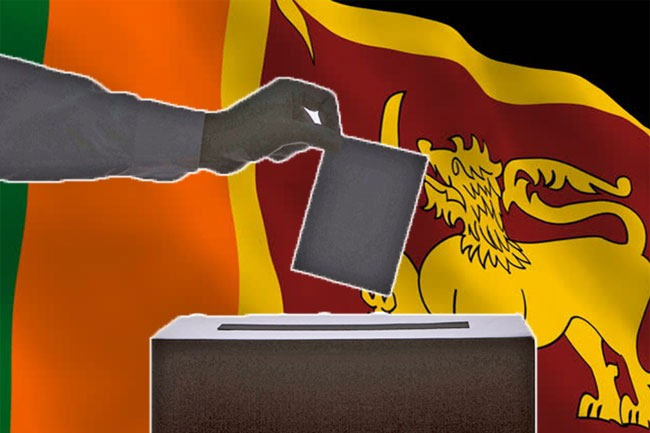Local Elections in Sri Lanka: No win for government or opposition
The outcome of the recent round of elections for the renewal of several municipal councils remains uncertain in many cases. In over 150 municipalities, no party or alliance holds an outright majority. The first meeting is scheduled for 2nd June. The opposition parties are attempting a difficult path towards unity in an effort to wrest control of the administrations from the ruling majority.
Colombo (AsiaNews) – With the elections for the renewal of municipal and local council leaders concluded, the struggle for leadership in over 150 councils remains open and uncertain, where no party or group holds an absolute majority in a context characterised by ambiguity. Currently, opposition parties are considering how to support each other in forming administrations in local councils, where the combined number of opposition members exceeds that of those elected from the ruling National People’s Power (NPP). Moreover, the local elections are conducted under a mixed-member proportional representation system (MMPR), with the last local elections taking place in 2018.
All local councils will convene for the first time on 2nd June. In those where no one has achieved a majority of 50% or more, if there is no consensus on the appointment of a president and vice-president, a vote will be held to elect these positions. Analysts and experts believe that “in a context of shaky unity, opposition parties are negotiating to thwart the NPP’s attempt”.
If this scenario comes to pass, opposition parties may seize control of local councils won by the NPP, although they will be unable to secure an absolute majority. The Colombo Municipal Council (CMC), which is considered "the grand prize of the entire election", could be part of this shift. Although the ruling party achieved a historic victory at the CMC, becoming the largest party in the council with 48 members, they are still short of 11 members to reach the 59 needed for an absolute majority in the 117-member council.
When asked by AsiaNews about the outcome of the local elections, political scientists Kasun Samarasekara and Nilanthi Wickramasinghe described it as "a brutal wake-up call for the NPP and its main constituent party, the Janatha Vimukthi Peramuna (JVP)". The elections, in fact, show how “the popularity of the government has collapsed in just six months since its overwhelming victory in the 2024 parliamentary elections”. Nonetheless, members of the executive maintain a “defiant tone”, insisting that “the results of a municipal election cannot be compared to presidential and parliamentary elections, instead of accepting the reality”.
“The government has also reacted angrily to the manoeuvres by opposition parties to take over the municipal councils where the combined strength of the opposition exceeds that of the NPP, insisting on its political and moral right – the experts conclude – to form these councils”. This claim is based on being “the largest party” within the councils in question.
Meanwhile, the first meeting between opposition parties, aimed at ensuring power in the local councils, took place on 14th May at the political office on Flower Road of former President Ranil Wickremesinghe. A large number of representatives from various factions were present, including key figures from the United National Party (UNP), Samagi Jana Balawegaya (SJB), Sri Lanka Podujana Peramuna (SLPP), Sri Lanka Freedom Party (SLFP), People’s Democratic Front, and the Ceylon Workers' Congress. Despite the positive assessment of the discussions, during the second round of talks that took place the following day between the party secretaries at a hotel in Colombo, the absence of representatives from the SJB and SLPP was noticeable.
As political parties and independent groups continue their discussions, the Election Commission (EC) is proceeding with the post-election process that will pave the way for the formation of councils. In those where a political party or independent group has secured 50% or more of the total votes, the commission has already requested the secretaries of political parties or independent groups to submit the names of members "whom they will appoint as heads of such councils". Finally, the EC has asked political parties and independent groups to send the names of members to be appointed to the Council from the additional list, including those of female members who will be nominated.







.png)










